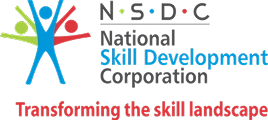Course Design By
Nasscom & Wipro
By enrolling in a Software Testing Certification course, you will learn the fundamentals step-by-step with our guidance.
Pursue either a bachelor's degree or a diploma in a related field to solidify your foundation.
Acquire the necessary skills and obtain a certification to showcase your expertise.
Gain practical experience in software testing fundamentals, programming basics, manual testing, and more.
There are many job opportunities in various countries.
You can explore different career options across many industries.
Over 4,500 students have successfully completed the course.
The course provides the skills and approach needed to start your career.
You will receive training in all aspects required by top IT companies.
Manual Tester: Executes test cases manually.
Automation Tester: Develops and uses automated scripts.
Performance Tester: Ensures software performs well under load.
Security Tester: Identifies and resolves security vulnerabilities.
UAT Tester: Tests from an end-user perspective.
QA Analyst: Oversees the quality assurance process.
Test Manager: Manages the testing team and processes.
Requirement Analysis: Understand and analyse client requirements.
Test Planning: Create detailed test plans covering scope and approach.
Test Case Design: Design test cases and prepare test data.
Test Environment Setup: Set up and maintain the test environment.
Test Execution: Execute test cases and document results.
Defect Reporting and Tracking: Log and track defects.
Automation: Write and maintain automated test scripts.
Performance Testing: Conduct load and stress testing.
Security Testing: Identify security threats and vulnerabilities.
User Acceptance Testing (UAT): Coordinate and perform UAT with end-users.
Reporting and Documentation: Prepare test summary reports and documentation.
Continuous Improvement: Participate in reviews and retrospectives.
Collaboration: Work with developers, analysts, and stakeholders.
we train you to get hired.

By registering here, I agree to Croma Campus Terms & Conditions and Privacy Policy
+ More Lessons
Course Design By

Nasscom & Wipro
Course Offered By

Croma Campus

Stories
success
inspiration


career upgrad


career upgrad


career upgrad


career upgrad
12-Jul-2025*
14-Jul-2025*
09-Jul-2025*
12-Jul-2025*
14-Jul-2025*
09-Jul-2025*

You will get certificate after
completion of program

You will get certificate after
completion of program

You will get certificate after
completion of program
in Collaboration with






Empowering Learning Through Real Experiences and Innovation

we train you to get hired.

Phone (For Voice Call):
+91-971 152 6942WhatsApp (For Call & Chat):
+91-971 152 6942Get a peek through the entire curriculum designed that ensures Placement Guidance
Course Design By


Course Offered By

Ready to streamline Your Process? Submit Your batch request today!
Yes, weekend classes are available.
Basic knowledge of programming is recommended.
Yes, placement assistance is provided once you are done with software testing course in Bangalore.
Yes, online classes are available.
Yes, practical projects are part of the curriculum.
Yes, certification is provided upon course completion.
The course covers manual testing, automation testing, and tools like Selenium.

FOR QUERIES, FEEDBACK OR ASSISTANCE
Best of support with us
For Voice Call
+91-971 152 6942For Whatsapp Call & Chat
+91-9711526942